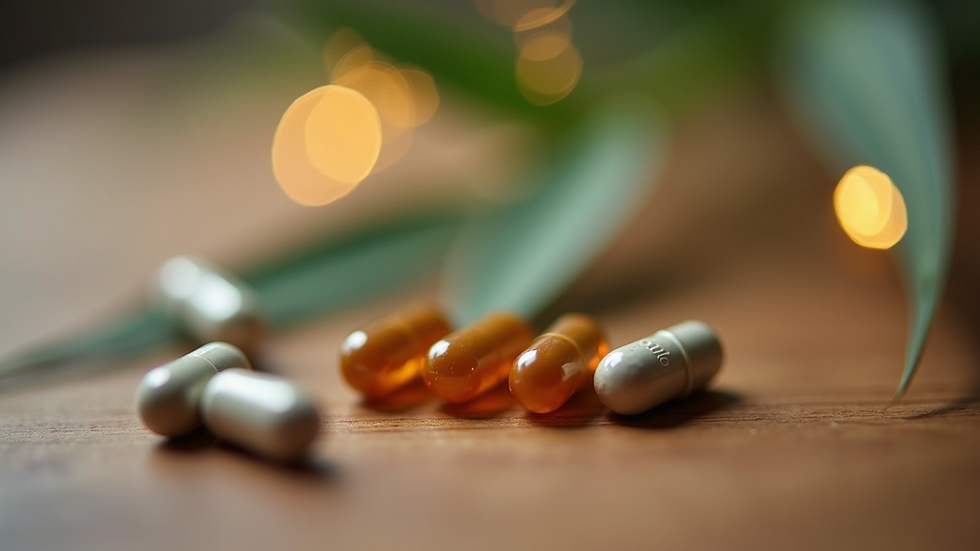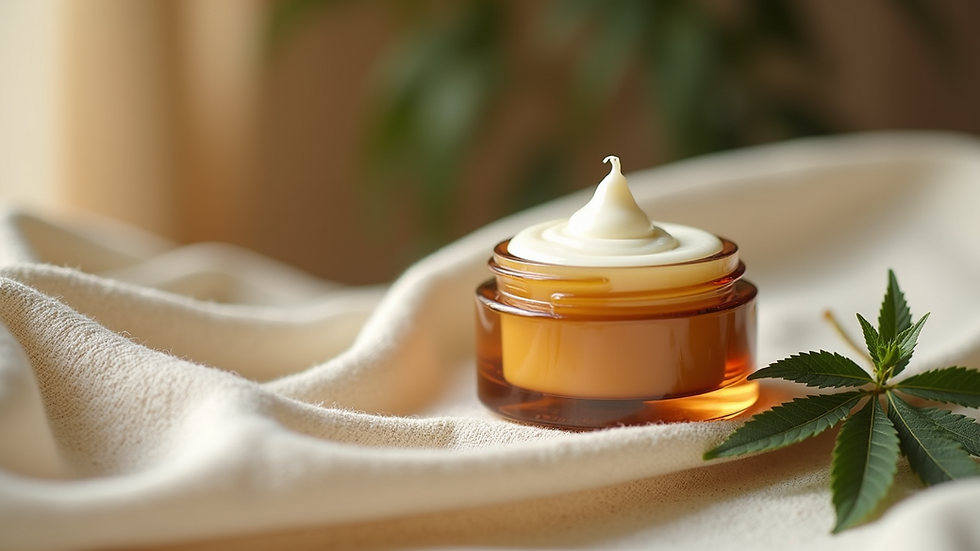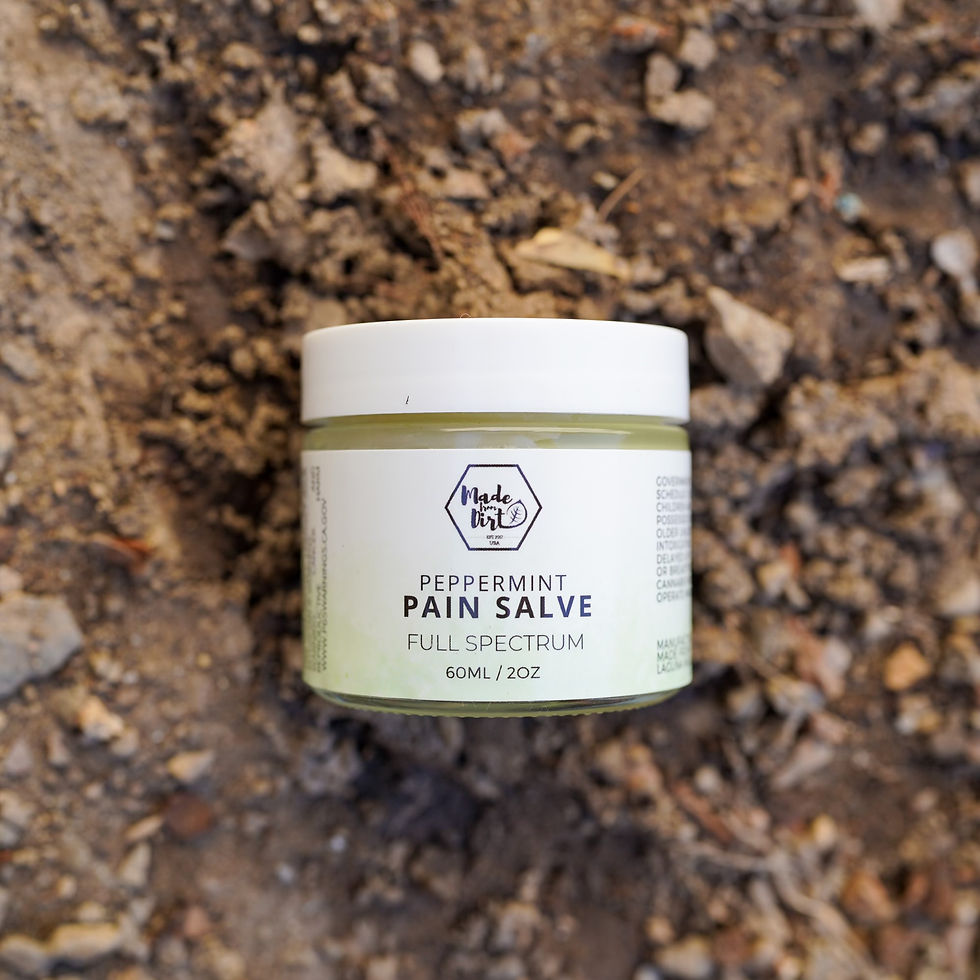Essential Guide to Understanding CBD for Beginners: What to Know Before Getting Started
- Dani Matthew
- Aug 5, 2025
- 4 min read
The increasing interest in natural health solutions has made CBD a popular topic in many discussions. Cannabidiol (CBD) is one of over 100 compounds found in cannabis, and it stands out for its potential health benefits. For those starting out, however, the flood of information can feel overwhelming. This guide breaks down what CBD is, how it communicates with your body, and what newcomers should keep in mind before trying it for themselves.
Understanding CBD
CBD, or cannabidiol, is a non-psychoactive compound extracted from the hemp plant. Unlike THC (tetrahydrocannabinol), which produces a "high," CBD engages with the body's endocannabinoid system (ECS). This system helps regulate various bodily functions, including pain management, mood stabilization, and immune responses. Interestingly, a survey conducted in 2022 revealed that 60% of CBD users reported an improvement in comfort levels and overall well-being.
The Differences Between CBD and THC
For beginners, recognizing the differences between CBD and THC is essential. Although both are derived from the cannabis plant, their effects are quite different:
CBD: Primarily sought for its calming and anti-inflammatory properties, it is often used by individuals seeking relief from anxiety, chronic pain, or sleep issues.
THC: This compound is associated with the psychoactive effects linked to cannabis. It can create feelings of euphoria and altered mental states, making it less appealing for those looking for therapeutic benefits without the high.
In fact, research from the National Institute on Drug Abuse indicates that over 30% of adults may report experiencing anxiety during the day, highlighting the demand for non-psychoactive alternatives like CBD.
Legal Considerations
Before trying CBD, it's essential to understand the legal context. In many places, CBD derived from hemp that contains less than 0.3% THC is legal. However, laws can differ greatly depending on your state or country. For example, in the United States, regulations surrounding CBD vary by state; as of 2023, 38 states have legalized CBD products to some extent. Therefore, always check local laws before purchasing.
Different Types of CBD Products
CBD is available in various formats, making it easy to find one that fits your lifestyle. Common types include:
Oils and Tinctures: These concentrated forms are taken sublingually (under the tongue) and often show effects within 15 to 45 minutes. For instance, one popular brand offers a 500mg CBD oil that many users report finding effective for anxiety relief.
Capsules and Edibles: Pre-measured doses make these convenient and ensure consistent intake. Studies show that CBD gummies can help reduce anxiety levels by as much as 50% in some users.
Topicals: Creams or lotions infused with CBD are applied directly to the skin, targeting specific areas of discomfort, such as sore muscles or joint pain.
Vape Products: While some people prefer inhaling CBD for its quick absorption, health experts caution that this method may pose respiratory risks.

Dosage Guidelines
Finding the right dosage can be challenging, especially for newcomers. It is recommended to start small and gradually increase your dosage based on your body’s response. Several factors affect the ideal dose:
Body Weight: Typically, heavier individuals may need higher doses. For example, a person weighing 200 pounds might start with a dosage of around 10-15 mg, while a person weighing 150 pounds might find 5-10 mg to be effective.
Condition Being Treated: Different conditions could call for varying dosages. For instance, those using CBD for chronic pain might need a higher amount compared to someone taking it for stress.
Metabolism: Each person's body processes substances differently, which means the ideal dosage can differ significantly.
A common starting point is 5-10 mg per day. Monitoring your reaction and adapting your dosage accordingly is vital. Consulting with a healthcare provider familiar with CBD can help create a tailored plan.
Potential Benefits
Many users report notable benefits from CBD use, although research is still evolving. Some of the most frequently cited advantages include:
Anxiety Relief: Some studies suggest that CBD could significantly reduce symptoms of anxiety, with findings indicating a 39% decrease in anxiety levels among users within a month of consistent use.
Pain Management: Research indicates that CBD may help ease chronic pain and inflammation, potentially benefiting up to 20% of adult Americans living with chronic pain.
Enhanced Sleep: Many people report better sleep quality when using CBD, with surveys showing that about 56% of users experienced improved sleep patterns within just a few weeks.
While these benefits are promising, ongoing research is needed to fully understand CBD's effectiveness.
Interactions with Other Medications
Before using CBD, it's important to consult a healthcare provider, especially if you are taking other medications. CBD can potentially interact with medications processed by the liver, affecting their efficacy. A healthcare professional can provide insights into potential interactions and advise on safe usage.
Finding Quality CBD Products
When looking for CBD products, quality should be your top priority. Here are some ways to ensure you choose the right item:
Third-Party Lab Testing: Opt for products tested by independent labs, which guarantee transparency regarding content and potency.
Full-Spectrum vs. Isolate: Full-spectrum products contain a variety of cannabinoids, which may work better due to the entourage effect. In contrast, isolates offer only pure CBD without additional compounds.
Source: Know where the hemp comes from. Organic and locally sourced hemp is often associated with higher quality standards.

How to Incorporate CBD into Your Lifestyle
Adding CBD to your daily routine can be straightforward. Here are a couple of ideas:
Morning Beverages: Starting your day with CBD-infused tea or coffee can help create a calm and focused mindset.
Skincare Regimen: Applying CBD-infused creams can enhance your skincare routine, particularly for those dealing with irritated skin or inflammation.
Evening Ritual: Consider CBD before bed to promote relaxation and improve the quality of your sleep.
Final Thoughts
Embarking on your CBD journey may seem intimidating at first, but with the right information, it can be a positive experience. By understanding what CBD is, how to use it, and being aware of its legal status, you can navigate this space with greater confidence. Start small, choose high-quality products, and consult with healthcare professionals whenever uncertain.
With a thoughtful approach, CBD has the potential to enhance your health and wellness journey, offering a new way to explore self-care and well-being.





Comments